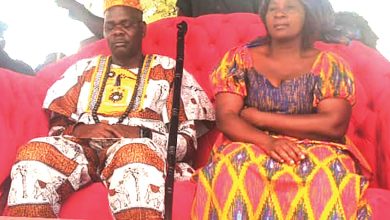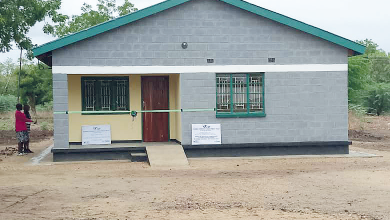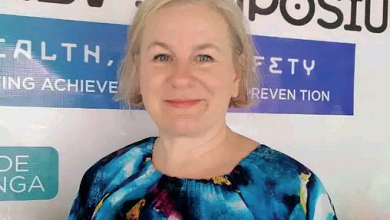Korean NGO’s dealings raise eyebrows
A Korean-funded charity, Good Neighbours Malawi, is under the spotlight for its procurement and foreign exchange dealings that favour particular service providers charging way higher than other qualified competitors.
Our review of documents and information gathered through interviews show that the NGO—funded by the Korean Government with an annual budget of $840 000 (around) K1.4 billion—has not just flouted its own internal policies, but also operates in legal and regulatory grey areas.
Good Neighbours has since 2008 supported child education sponsorship, community development and humanitarian emergency relief in Malawi.
At the centre of the controversial decisions is Good Neighbours Malawi country director Gyo Jin Joo, who insiders we talked to accuse of making unilateral decisions on contract awards that, in some cases, have tended to favour an entity run by a fellow Korean.

On procurement, for example, our findings reveal that twice last year, the NGO awarded two contracts to another Korean firm, Fairway Enterprise, without involving the procurement committee as per its own policy.
The organisation’s procurement policy and procedures place the internal procurement committee (IPC), which include senior management, in-charge of all procurements above the threshold of K30 million.
But that is not what happened on October 16 2024 when Good Neighbours signed a contract amounting to K273 million with Fairway Enterprise for the supply of 6 000 bags of maize, according to a high level source at Good Neighbours.
According to the inside source, the IPC was not involved in the award of the contract to Fairways Enterprise. There were three other bidders—Rab Processors, Paramount Commodities and Bua Investments who were never evaluated for the tender.
“Fairway Enterprise agrees to supply and deliver 3 000 [50 kg] bags of maize to designated camps in Chikwawa District and another 3 000 [50 kg] bags of maize to designated camps in Balaka District, as identified by GNM, for the Koica [Korea International Cooperation Agency] Rapid Project,” reads the contract agreement in part signed by Good Neighbours Malawi’s chief Joo and Fairway’s chief executive officer Seongchae Noh.
In December 2014, Fairway was awarded another contract worth K87 840 000 to supply 900 bags of dehulled maize for a school feeding programme targeting learners in Kasungu and Lilongwe districts.
For this, according to our well-placed sources, there was also no bidding; it by-passed the IPC and no contract was signed, yet the supplier was paid in advance before delivery of supplies.
In an interview, Joo stated that this procurement was approved by the board following standard quotation procedures overseen by the administration.
But the guidelines state that for all procurement valued more than K30 million there has to be a formal bidding process.
“For procurements below K200 000, at least two quotations are required; for procurements between K200 000 and K30 000 000, three quotations are required; and for procurements exceeding K30 000 000, a formal bidding process will be conducted,” reads the organisation’s procurement policy.
Joo justified the selection of Fairway, saying it is their social enterprise which “can supply them more cost-effectively, thereby enabling the organisation to serve more beneficiaries”.
But evidence we have gathered show that Paramount Commodities was the lowest bidder with an offer of K266 million. In fact, this decision attracted an audit query.
“Paramount commodities had lowest bidder, but they opted for Fairway Enterprise and there was no procurement committee report to support the decision,” reads the report to management from auditors Nexia Graham Carr for the year ending December 31 2024.
In response to our questionnaire, the board chairperson, Clement Bisai, confirmed that the board was “informed” about the contract to supply maize worth K273 million, but was not aware of the details of the second contract.
Joo did not address our question on this contract.
According to Bisai, before approval, the board sought more information and was informed that the procurement process was competitive with five bidders participating.
The board eventually approved the procurement of maize worth K273 million, Bisai said.
But the NGO’s policy is silent on the role of the board on procurement.
According to the board chair, the approval was sought because of the threshold of the procurement.
Added Bisai: “While we are aware that operational procedures are within the [jurisdiction] of management, we will inquire with management circumstances behind these two issues. Remedial action will be undertaken should we find that there was any anomaly.”
Misprocurement is not limited to these two transactions. The audit report to management reveals that payment amounting to K450 million was made without an IPC report to justify selection of suppliers last year.
The audit query also includes another payment amounting to K341 651 556 which lacks justification on why the NGO did not consider suppliers who offered lowest prices as stipulated in its own procurement policy.
Another red flag in the operations of Good Neighbours is on foreign currency trading where the organisation has limited itself to one commercial bank.
It is standard practice for NGOs to go for a higher rate to gain more in local currency. The 2025 Foreign Exchange Control Measures grant NGOs the freedom to trade with any bank that is offering better rates. This competition offers suppliers value for money amid forex shortages.
But records we have seen show that for the past year, Good Neighbours has consistently dealt with one bank whose rate is lower than others thereby denying itself an opportunity to earn more.
From records we have seen, in the last 24 months, the organisation can receive a transfer of $400 000 from the Korean government at a go, through Korea International Cooperation Agency (Koica).
Currently prevailing rates in banks range from K1 800 to K1 950 to a dollar. This means at K1 800 the organisation can get K720 million and K780 million at the rate of K1 950.
The difference of K60 million is worth 1 200 bags of maize at K50 000 per bag which can make a difference in either their school feeding programme or emergency relief.
But according Joo, they deal with one bank because they cannot trust others.
“Given the challenges within the NGO sector and the country involving illegal forex remittances, we have intentionally chosen to work with a bank that prioritises regulatory compliance.
“While other institutions may offer more favourable exchange rates, we do not compromise on transparency or legal assurance,” explained Joo.
In an interview, Financial Market Dealers Association president Leslie Fatch vouched for all eight commercial banks as licensed to transact with any client who intends to sell foreign currency against Malawi kwacha.
The exchange control regulations, gazetted in April this year, under Section 8 allow NGOs to convert foreign currency through “an authorised dealer bank and at the authorised dealer’s bank selling rate”.
Fatch added that, from experience, most NGOs dealing in foreign currency source quotations from more than one bank largely to gain more value from their proceeds, but also “maintaining a relationship with the rest of the banks which helps in distribution of forex in the economy”.
The NGO Act of 2021expects transparency and accountability in public benefit non-governmental organisations.
In a written response, NGO Regulatory Authority (Ngora) chief executive officer Edward Chileka Banda said according to the law, NGOs are required to submit reports including annual financial returns to Ngora because this money is considered to be public money.
“The NGO Act requires that NGOs also comply with other laws, including Public Procurement and Disposal Act meaning that they are supposed to have independent Internal Procurement and Disposal Committees though not required to report to PPDA. Meaning that their procurement procedures should conform to the Procurement Act,” said Chileka.





